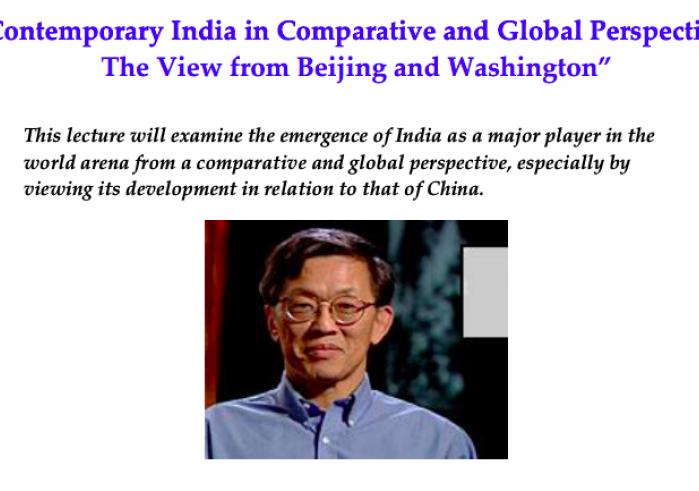Contemporary India in Comparative and Global Perspective - Anand Yang Ph.D.

The PBRC Distinguished Speakers Series Presents
Anand Yang Ph.D.
“Contemporary India in Comparative and Global Perspective: The View from Beijing and Washington”
March 6 , 2006
Pauling 216 5:00-6:00 p.m.
This lecture will examine the emergence of India as a major player in the world arena from a comparative and global perspective, especially by viewing its development in relation to that of China.
Anand A. Yang is Golub Chair of International Studies and Director of the Henry M. Jackson School of International Studies. Prior to joining the University of Washington in 2002, Yang taught at the University of Utah and Sweet Briar College. At Utah, he was chair of the History Department for five years and, subsequently, Director of its Asian Studies Program for six years. He is the author of: The Limited Raj: Agrarian Relations in Colonial India and Bazaar India: Peasants, Traders, Markets and the Colonial State in Gangetic Bihar; numerous articles in journals in Asian Studies, History, and the Social Sciences; an edited volume on Crime and Criminality in British India. His most recent publication is a co-edited work on Interactions: Transregional Perspectives on World History (2005). Currently, he is working on a book on Indian convicts in Southeast Asia and a number of other projects relating to South Asian and world history. Yang is the former editor of The Journal of Asian Studies and Peasant Studies, and has been and is a member of the editorial boards of several journals in Asian Studies and in History. He is actively engaged in world history projects at the collegiate and pre-collegiate levels that are aimed at enhancing our historical understanding of our contemporary world. Born in Shantineketan, India, of Chinese parents, he grew up and attended school for much of his early years in New Delhi. From there he moved to Mexico City, where he finished high school before moving to the United States to attend college. In 2006, he will begin his term as the President of the Association for Asian Studies.
